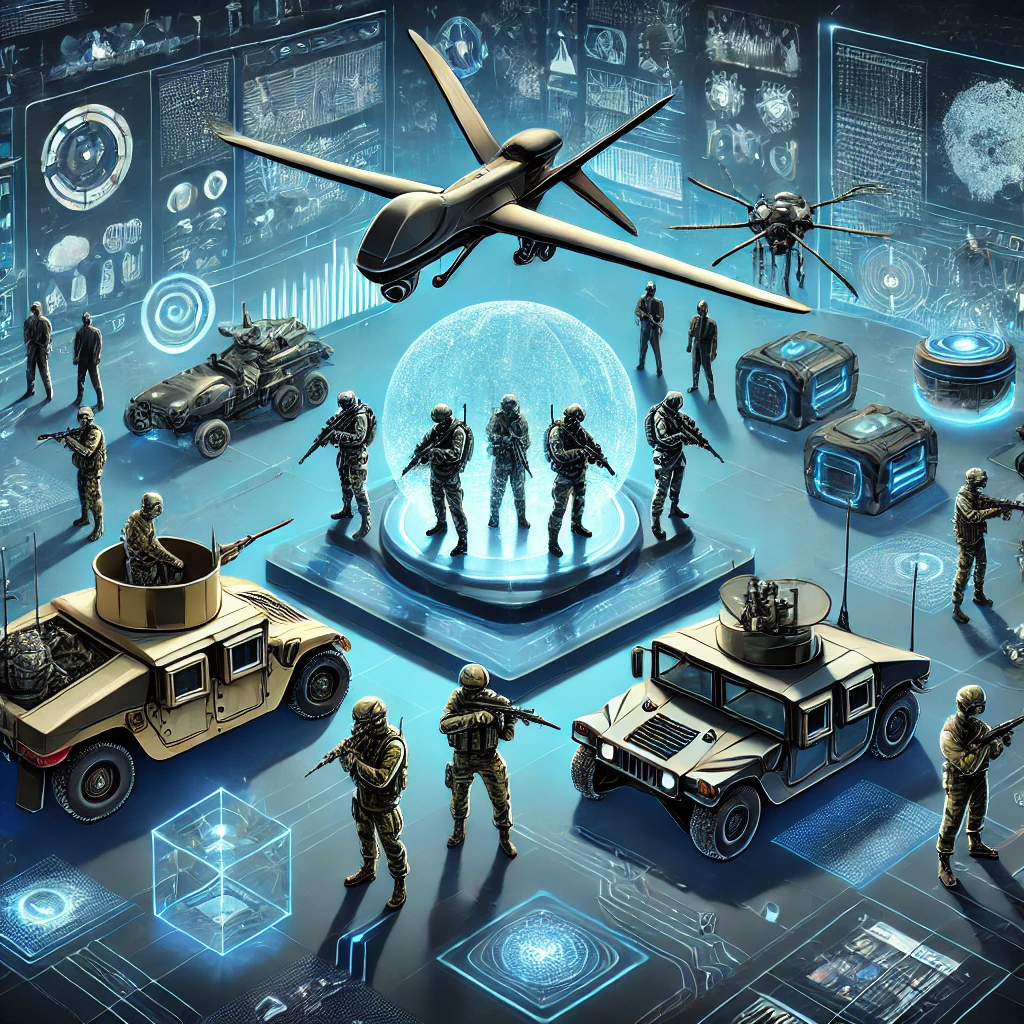As artificial intelligence (AI) transforms industries worldwide, it is also reshaping modern warfare. The integration of AI into military operations is rapidly changing the nature of conflict, requiring nations to develop new strategies and advanced weaponry. In this age of AI, wars are no longer fought solely with conventional arms but increasingly through the deployment of intelligent systems that can predict, analyze, and respond with unprecedented speed and precision.
AI’s Impact on Modern Warfare
AI technologies such as machine learning, computer vision, and autonomous systems are revolutionizing military capabilities. These tools are enabling faster decision-making, improved reconnaissance, and the development of autonomous weapon systems. From drones capable of conducting surveillance missions to AI-driven cybersecurity defenses, militaries worldwide are embracing AI to gain a strategic edge.
For instance, autonomous drones equipped with AI algorithms can identify and engage targets without human intervention. These systems are transforming air combat by reducing the need for human pilots in high-risk missions. AI also allows for more accurate predictive maintenance, ensuring that equipment like tanks, jets, and ships are operational when needed.
Moreover, AI-powered tools are enhancing the speed of data processing and intelligence gathering. In the digital age, wars are as much about information as they are about firepower, and AI is critical in sifting through vast amounts of data to deliver actionable insights to military commanders in real time.
The Rise of Autonomous Weapons
Autonomous weapons, often referred to as “killer robots,” represent one of the most controversial advancements in AI-driven warfare. These systems, once deployed, can independently select and engage targets without direct human oversight. Autonomous weapons could lead to faster and more precise military actions, but they also raise significant ethical concerns about accountability and the potential for unintended consequences.
The development of lethal autonomous weapon systems (LAWS) has sparked debates about their regulation and use in combat. Proponents argue that these systems reduce the risk to human soldiers, while critics fear that AI systems lack the moral judgment required to make life-and-death decisions. Many nations and advocacy groups are calling for international regulations to govern the deployment of these technologies.
AI-Driven Cyber Warfare
As military conflicts increasingly shift to cyberspace, AI is becoming a critical tool in both defensive and offensive cyber operations. AI can be used to detect and respond to cyberattacks at lightning speed, identifying vulnerabilities and neutralizing threats before they cause damage. Militaries are using AI to protect critical infrastructure, disrupt enemy communications, and gather intelligence from digital networks.
AI-driven cyber warfare capabilities also include the use of AI to create sophisticated disinformation campaigns, deepfake videos, and automated hacking tools. As these tools become more advanced, traditional defenses may struggle to keep pace, requiring new strategies to combat AI-augmented threats.
The Ethical Dilemma
The integration of AI into warfare raises profound ethical questions. Autonomous weapons, AI decision-making in combat scenarios, and the use of AI in surveillance challenge traditional notions of responsibility and accountability in war. Who is responsible if an AI-powered drone makes a fatal mistake? Can autonomous systems be trusted to distinguish between combatants and civilians?
These concerns have led to calls for a global framework that establishes clear regulations on the use of AI in warfare. The United Nations has already begun discussions on the ethical implications of AI in military applications, and several countries have voiced support for a ban on lethal autonomous weapons.
The Future of AI in Warfare
The future of warfare will undoubtedly be shaped by AI, with countries racing to develop advanced military technologies. The United States, China, and Russia are investing heavily in AI research for defense purposes, focusing on everything from autonomous vehicles to AI-enhanced decision-making systems.
In response to these technological advances, militaries will need to rethink their strategies and develop new doctrines that incorporate AI capabilities. The ability to integrate AI into existing command structures and ensure that human oversight remains a key component of decision-making will be critical to maintaining control in future conflicts.
Conclusion
As AI continues to evolve, so too will the nature of warfare. AI-driven weapons, systems, and strategies offer unprecedented capabilities but also present new challenges and ethical dilemmas. To navigate this new era of conflict, nations must balance technological innovation with thoughtful regulation and ensure that AI is used responsibly in the theater of war. The future of warfare will not only be determined by the power of AI but also by how it is harnessed, governed, and controlled.





